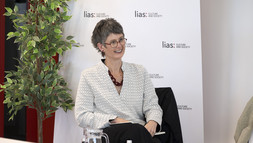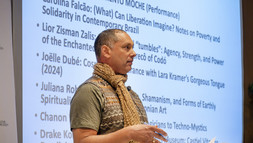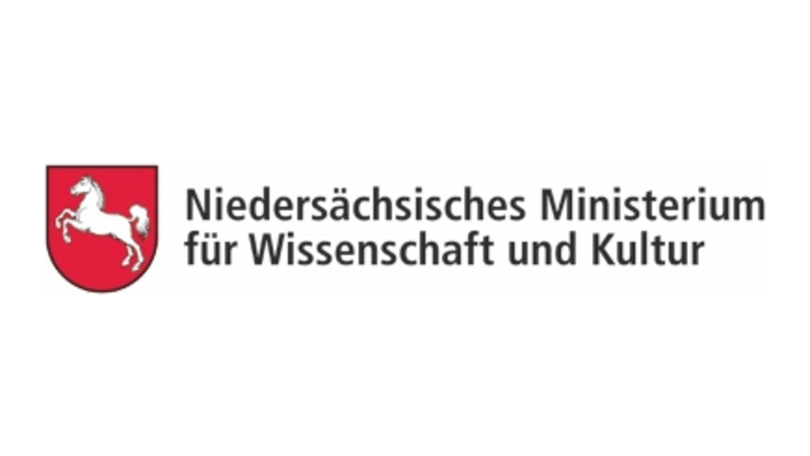Leuphana Institute for Advanced Studies (LIAS) in Culture and Society
The Leuphana Institute for Advanced Studies (LIAS) at Leuphana University Lüneburg was founded in 2022 as a research institute dedicated to strengthening and internationalising the university’s research profile. Supported by an international fellowship program, it engages with the challenges of a globalized present through research-driven approaches. As an institution, it contributes to positioning Lower Saxony as a hub for international research and multiperspectival thinking. LIAS provides a home for the enrichment that emerges from ongoing exchange among scholars and from the continuous development of research perspectives – a shared space shaped by many. A particular emphasis is placed on collaboration with fellows at various career stages from the Global South. Located in the university’s central building designed by Daniel Libeskind, LIAS is also defined by its integration within the university and its commitment to co-creation.
Culture and Society in Transformation
LIAS in Culture and Society promotes diagnostic and critical research across the broad field of the humanities, cultural studies, and social sciences. Building on Lüneburg’s tradition of bringing together perspectives from the humanities and social sciences, LIAS in Culture and Society deliberately transcends disciplinary boundaries. By exploring processes of social potentialization amid transformation and polycrisis, LIAS in Culture and Society develops new possibilities for shaping the future and expanding the scope for thought and action. In doing so, it also advances Leuphana’s goal of assuming responsibility for social transformation processes as a university. LIAS in Culture and Society is funded through 2027 by the programme “Spitzenforschung für Niedersachsen” (SPRUNG), and, from 2027 onward, by the “Potenziale strategisch entfalten” funding line of the “Zukunft. Niedersachsen” programme, with support from the Lower Saxony Ministry of Science and Culture. It forms an integral part of Leuphana’s strategic initiative “Embracing Transformation”, which is funded within this framework.
Transformative Knowledge
Beginning in spring 2027, LIAS will enter its second funding phase. Building on our guiding research mottos “Thinking Across Hemispheres”, “Critique and Imagination”, “Potentialisation”, and “Coexistence in a Globalized World”, the institute will place greater emphasis on processes of social transformation – both historical and contemporary – and on the settings, actors, and theories that generate transformative knowledge. While change was initially seen as a problem of modernity, since the 1950s – and even more so since 1989 and the 2000s—processes such as cybernetization, computerization, decolonization, globalization, and the emergence of the climate challenge have fostered a growing preoccupation with change as a supposedly nonviolent transformation that can and must be shaped, directed, and controlled. In the latter half of the 20th century and the early 21st, a new rationality of governance appears to be emergent rationality of transformation – accompanied by corresponding forms of knowledge and power, the genesis and effects of which must be examined in diverse contexts. It is essential to question how such processes of change and governmentalities – often brought about by economic, technological, or political forces – have become naturalized, and to shed light on the discontinuities, heterogeneities, and residues within both past and present processes of transformation. At LIAS we investigate the actors, side effects, experiences, frictions, materialities, narratives, and conflicts that accompany processes of transformation, as well as transformative practices and knowledge in global, local, and multidirectional terms. The institute particularly fosters interdisciplinary research across the full spectrum of culture and society – research that advocates for new ways of imagining the world and global coexistence. In this way, LIAS supports projects that not only generate transformative knowledge, but also critically interrogate the very discourse of transformation itself.
(25 October 2025)
Mission Statement
Programme and Objectives
LIAS in Culture and Society is committed to countering a discourse of no alternatives. Over and above short-term solutions for responding to crises, it strives to open new perspectives and spaces for thought and action. Accordingly, it promotes engaged scholarship so as to uncover, support, and multiply modes of societal potentialization, that is, to interrogate existing certainties and thus activate and engender new possibilities.
Problem Situation and Guiding Principles
LIAS in Culture and Society enquires into the need for new categories, ways of thinking, and methodologies. Without the development of new approaches and modes of thought, so the premise, the future will increasingly be understood solely in terms of a scientific-technical challenge, in the sense of a programmed or a programmable future, while simultaneously no longer being able to address overwhelming cultural and societal challenges. Against this backdrop, the cultural studies at LIAS in Culture and Society, as an interdisciplinary configuration of the humanities and social sciences, strive to systematically reveal what is obscured by techno-scientific operationalities, political-economic rationales, socially dominant patterns of knowledge, and implicit as well as explicit relations of violence. In the context of increasingly disruptive developments in society, the LIAS research programme therefore aims to reformulate research practices in the humanities and social sciences as a “potentialization” or pluralization of the possible that tackles social and cultural questions in nuanced and productive ways through “Critique and Imagination” – one of our mottos. The aim of this approach is always the restoration of society’s capacity to respond. LIAS is aware of the global challenges and manifests its responsibility for cross-border, networked, and multi-perspective thinking in its motto “Co-Existence in a Globalized World”. The “Thinking Across Hemispheres” programme takes into account the impact of interlinked problems in the so-called Global South and North. Hence, what has remained unthought, unarticulated, and unquestioned is revealed.
Research Approach
LIAS in Culture and Society promotes basic research in the humanities, cultural studies, and social sciences at the interface of social diagnosis, critical reflection, and imagination.
LIAS in Culture and Society supports outstanding projects that examine the historical, contemporary, sociocultural, epistemological, political-economic, legal, and technical- scientific conditions of co-existence in a globalized world. It supports research that makes visible multiple forms of articulation and points to contexts that stand for perspectives beyond and outside existing social or political fault lines. With its methodological emphasis on potentialization, LIAS in Culture and Society relies on an ethos of problematization, a critical diagnosis of the present, genealogies of contemporary lines of conflict, methodological openness, and cultural imaginativeness. Empirical methods may be coupled with conceptual and theoretical work, local knowledge with transnational imaginaries. In this regard, a dialogue with researchers from the so-called Global South that provincializes European perspectives contributes to developing research interventions that think across and beyond hemispheres. In particular, emphasis is placed on dialogue with researchers from the Global South, that is, perspectives that European viewpoints tend to view as peripheral.
The institute also actively welcomes non-academic actors in a co-creative approach to collaborative work on potentialization and a targeted expansion of discourse. The aim is to identify relevant voices in research, politics, culture, and business. Public fellows invited by LIAS in Culture and Society provide additional stimuli for co-creative scholarly work and research communication.
This agenda, which also seeks to creatively question and broaden its own scientific approach, incorporates cultural and artistic practices that, with their sensorial-material and intellectual qualities, foster a multiplication of modes of thought, methodologies, and perceptions. To emphasize this focus, LIAS awards an annual Artist Fellowship. Together, the themes “Thinking Across Hemispheres,” “Potentialization,”, “Critique and Imagination”, and “Co-Existence in a Globalized World” form an ambitious and unique resonance chamber and a self-reflective examination of research and academia.

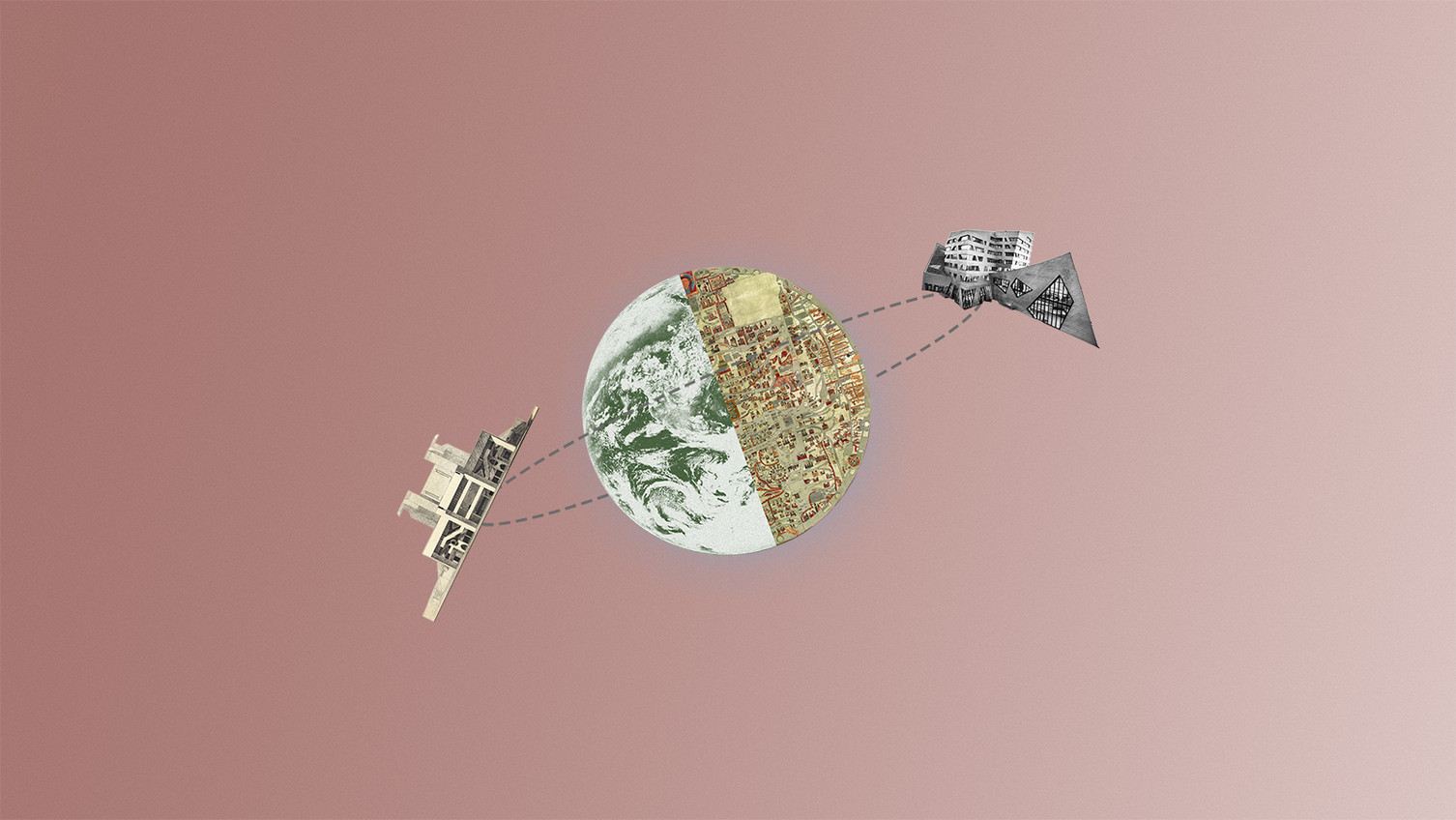
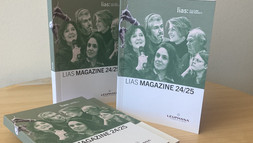
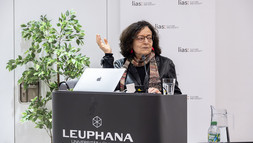
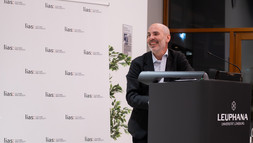
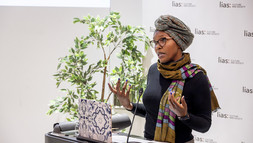
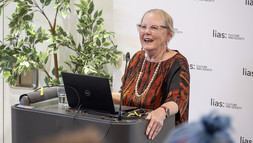
![[Translate to Englisch:]](/fileadmin/_processed_/7/9/csm__DSC3848_4385324f3e.jpg)
